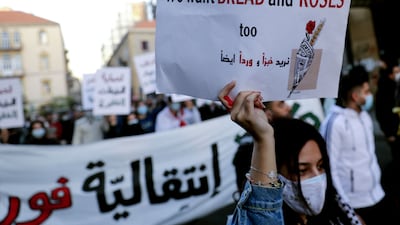There probably is no greater imperative in the Arab world than to create good, sustainable jobs. While the economic landscape can look bleak to observers, the good news is that we not only have the resources, endurance and capacity to do so, but several countries have already shown their willingness and their ability to create dynamic markets.
Let’s start with the outlook.
The Arab region registers the world’s highest unemployment rate, at 8.2 per cent for males and a staggering 20.1 per cent for females in 2023. Meanwhile, the general youth unemployment rate stands at 26.4 per cent currently – about 22.2 per cent for men and 42 per cent for women. Several segments of the populations face similarly challenging prospects, and the crises currently affecting the region are certainly not helping to address the job creation imperative.
This overall challenge is compounded by other factors, including low data availability; structural issues hindering women’s labour market participation; market contestability impeding growth and job creation; financial and legal literacy as barriers to inclusion; and populations with disabilities in the Arab world being only half as likely to be employed as the rest of the working-age population, resulting in wasted potential. Additionally, the economic inclusion of refugees is a pressing need, with millions displaced across the region.
While the enormity of the challenge is daunting, we can transform it into a unique opportunity to supercharge growth through increased economic inclusion and the realisation of individual potentials.
Recently, the International Finance Corporation, which is part of the World Bank Group, and 15 companies from seven countries launched the 1001 Stars Initiative, which demonstrates what is possible when you connect economically disadvantaged groups in the region to jobs and training.
The initiative – led by private sector leaders from Afghanistan, Iraq, Jordan, Lebanon, Pakistan, the West Bank and Gaza, and Yemen – focuses on some of the most fragile yet resilient societies in the region.
These leaders have committed to creating about 60,000 jobs, training, and financial inclusion opportunities directly, and to positively affect another 70,000 indirect beneficiaries. By providing women; youth not in education, employment or training; forcibly displaced people; and people with disabilities with quality employment and training opportunities, we can empower them to build a better future for themselves, their families and the region.
But this will not be enough.
Other challenges, which have been compounded by an often-tragic historic heritage, need to be urgently tackled. In its Jobs Undone report, the World Bank highlighted how the number and quality of jobs in the Mena economy depend on contestable markets – those in which there is ease of entry and exit of firms, and where the pressure of potential competition always exists. The lack of market contestability makes it hard for new firms to start up and expand – so employment cannot grow fast enough to keep up with the growth of the working-age population.
The main reason for the lack of market contestability is because the Mena region’s state-owned enterprises still play a dominant role and receive preferential treatment regarding taxes, financing and subsidies. In addition, limited market dynamism and stunted job creation continue to depress the region’s sclerotic private sector; little of the region’s recent growth has come from growth in labour productivity, and little has come from structural change (workers moving towards more productive sectors).
Finally, the report notes the importance of understanding the policies and regulations that can hinder market contestability to achieve progress. Governments should reduce the dominance of state-owned enterprises, for example, by eliminating exclusions and exceptions from competition, procurement and tax laws that are applied to private operators.
And there is a need for reforms in some countries to address the restrictions on women working in specific industries, as well as limited working hours for women, unequal pay compared to men, and the need for women to obtain spousal permission to get jobs. To combat any opposition to such reforms, the report advocates an incremental approach, focusing initially on emerging sectors such as the digital economy and green economy.
There is no reason, in any case, to believe that these are insurmountable issues. A few countries in the Arab world have already led the way by demonstrating that it is possible to overcome these very challenges to become vibrant economic powerhouses, starting with the UAE and Saudi Arabia.
Both countries are making strides in increasing women’s participation in the economy, and with an unemployment rate at just 3 per cent in the UAE in 2023 and 5 per cent in Saudi Arabia, both nations show that it is possible to eradicate mass unemployment.
The Arab world can definitely contemplate a brighter future if it can foster an inclusive and dynamic economic landscape in the region.


